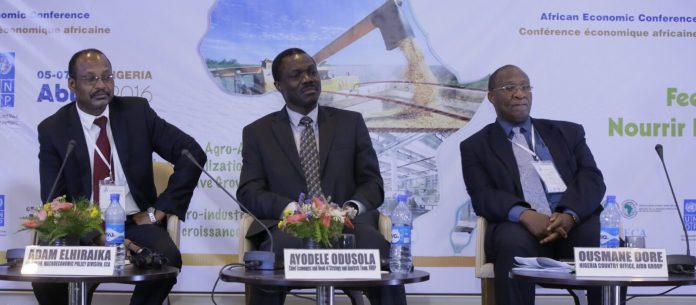The Moroccan circle Policy Center for the New South publishes its 2020 Africa Economic Report. The opportunity, at the end of this special year, to identify weaknesses and potential strengths for the post-Covid-19 period.
An exhaustive photograph of the situation in Africa at the end of 2020. Under the direction of Larabi Jaïdi, the Policy Center for the New South (PCNS) publishes its second economic report on the continent.
The PCNS is a Moroccan Think Tank whose mission is to contribute to the improvement of public policies, both economic and social and international, which concern Morocco and Africa, integral parts of the global South.
In this report, few recommendations, few prospects, but an inventory which in itself opens up new perspectives. Covid-19 has severely disrupted the macroeconomic balances and financing of development in Africa. The losses of activity are considerable for the whole continent, even if they differ between countries and regions.
Each set reacts according to its own characteristics and the constraints to which it is exposed. All countries have been obliged to initiate stimulus programs, observes the Moroccan Think Tank. Who considers that the “return to normal” will probably be gradual. The assumption of a recovery by 2023 assumes strong growth.
It is in the overhaul of their development models and the acceleration of continental integration that African countries can find the answers to a lasting way out of the crisis. “Africa must aspire to be both a continent where sustainable and resilient development models are being put in place and a convergence of the strategic interests of the countries that make it up.”
While the virus appears to be spreading more slowly across the African continent than in other parts of the world, the contagion is taking a heavy toll on the African population. Countries plagued by difficult social and political conditions – such as political instability and conflict, food shortages or, again, the high concentration of refugee camps – are the most vulnerable. Job losses, worsening vulnerability and food insecurity, heightened risks for displaced populations and migrants, strained health systems, these are the most devastating effects of the pandemic.
Insufficient infrastructure The shock to employment is massive, with an unemployment rate in African countries that had already more than doubled between the end of 2019 and June 2020, from 5.3% to 11.4%. The African Union has predicted the loss of 20 million jobs, countries whose economies rely on oil production and tourism are most at risk.
In terms of vulnerability, between 28.2 million and 49.2 million more Africans are at risk of being pushed back into extreme poverty, the report said, citing figures from the World Bank. The consumption of poor and vulnerable households is expected to decline significantly due to the reduction in labor and household incomes.
For their part, health systems are under strain. When it comes to infrastructure, Africa is one of the regions in the world least prepared to deal with the consequences of a pandemic. However, the management of the Ebola crisis has shown the positive effect of the exchange of capacities between countries, of partnerships between technical bodies, international organizations and the private sector, or even of raising public awareness of public health issues.
The initiatives of economic actors (the mining sector in Guinea), social (local health systems in Sierra Leone) or informational (establishment of mechanisms for monitoring the epidemic in Liberia) have been very effective. The institutions created at the time have been mobilized to deal with the current pandemic.
In Central Africa, however, almost all countries will be heavily impacted. The hardest hit will be those whose income is heavily dependent on commodity exports. To revive the economies that will enter recession, the States will have to implement a set of counter-cyclical policies including emergency measures and structural reforms aimed primarily at the diversification and structural transformation of economies.
For a coordinated energy policy In the Maghreb, the importance of the human losses caused by the pandemic and the violence of its economic impact, have shown that the responses, fragmented and uncoordinated between the countries of the region, can no longer constitute solutions to exceptional situations. This, while extreme events of any kind can occur at any time, which cannot be anticipated and which often know no borders.
In North Africa, the authors point to the heavy dependence of economies on global demand, which goes beyond the phrase “the insertion of these countries into international value chains”. This dependence is structural, in the sense that it directly calls into question and affects the long term and the sustainability of the internal and external balances of the Maghreb economies. In addition to this economic vulnerability, there is a deterioration in the level of health security, which calls for the strengthening of health structures and a review of national health policies.
Likewise, food security is another major challenge for the Maghreb countries. On the other hand, energy security, both in its dimension of guaranteeing energy supply, environmental protection and efficiency, is a vector for revitalizing the Maghreb project. These challenges, and the issues they convey, are common to all countries in the region. Raising them can constitute one of the avenues of revival of North African construction.
It is a question, through this approach, of going towards a Maghreb of projects which will allow the overdetermination of the political to be overcome in favor of a pragmatism in the Maghreb relations as well as the circumvention of the current heterogeneity of the institutional structures of the countries in the region.
Reference: https://www.policycenter.ma/sites/default/files/Review%20_%20Rapport_annuel_sur_Economie_Afrique.pdf































